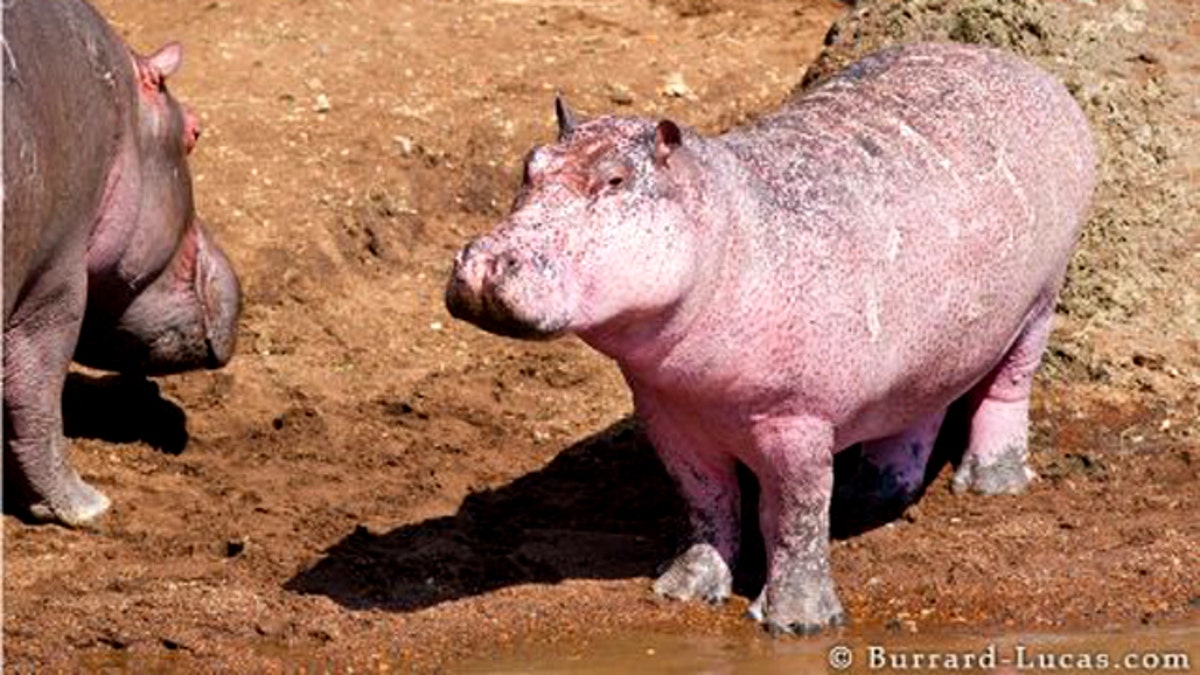
Wildlife photographers in Kenya were pleasantly surprised to stumble across this rare site: a pink hippo. (William Burrard-Lucas)
Seeing pink elephants may mean you're drunk. Seeing pink hippos? You must be in Kenya.
On a recent expedition to the Masai Mara in Kenya, nature photographers Will and Matt Burrard-Lucas spotted the unusual beast. Pink hippos have previously been seen on only a handful of occasions, largely in Uganda, they said.
In a post on their site, Will Burrard-Lucas described the encounter:
"After a rather uneventful morning, we stopped on the banks of the Mara River for a picnic breakfast. It was then that we came across a truly exceptional individual… just as we started to tuck into our breakfast, we looked up and gawked, open-mouthed, as a pink hippopotamus emerged from the river!"
The pair dropped their breakfasts and reached for their cameras, capturing a series of pictures of the unusual beast.
"The hippo was clearly a young one since it was much smaller than the others in the group. It was also very shy and tended to stick close to its mother," he said.
Burrard-Lucas believes the hippo was not albino but "leucistic," a condition characterized by reduced pigmentation in the skin. Albinism means the absence of one specific type of pigment, melanin.
Lee Poston, a spokesman for the World Wildlife Fund, agreed with the diagnosis.
"This particular hippo it would appear has a condition where it doesn't produce as much pigment in its skin as other species. It's a condition called leucism, and it would appear that this is a rare condition," he told FoxNews.com.
Strange though the creature may be, it seems to be real, he said. "It's an amazing photograph and it just shows you the real diversity of species out there -- hippos included," he said.
The photographers were thrilled by the opportunity to see such an usual beast. "As wildlife photographers, it is always exciting to photograph something a little bit different," Burrard-Lucas wrote.
"We hope that it goes on to live a full and happy hippo life and that visitors to the Masai Mara can continue to marvel at its fetching pink rump for many years to come!"
Poston agreed.
"It's a great example of one of the wonders of nature," he said.
FoxNews.com's SciTech section is on Twitter! Follow us @fxnscitech.








































